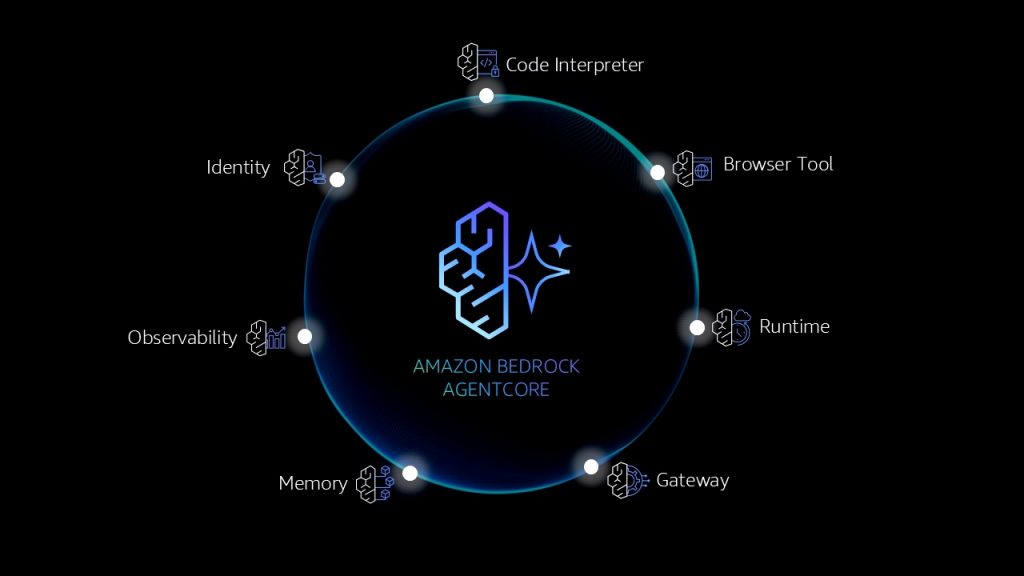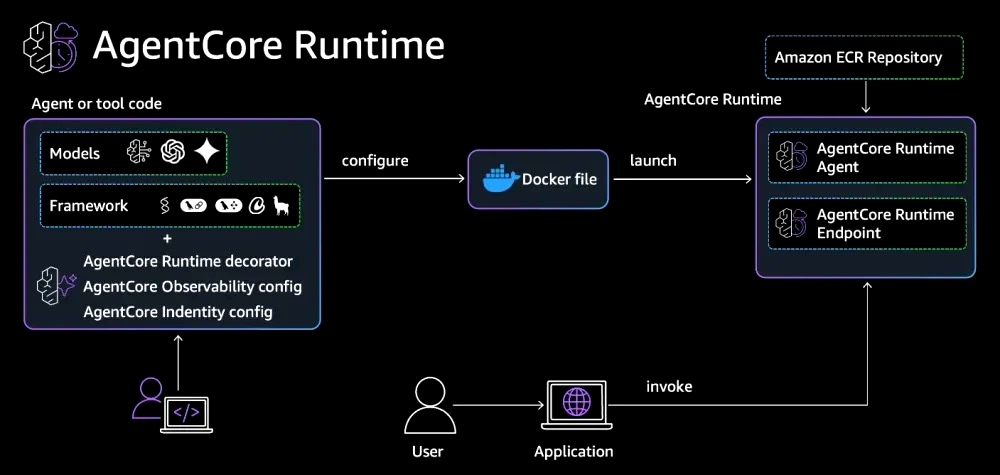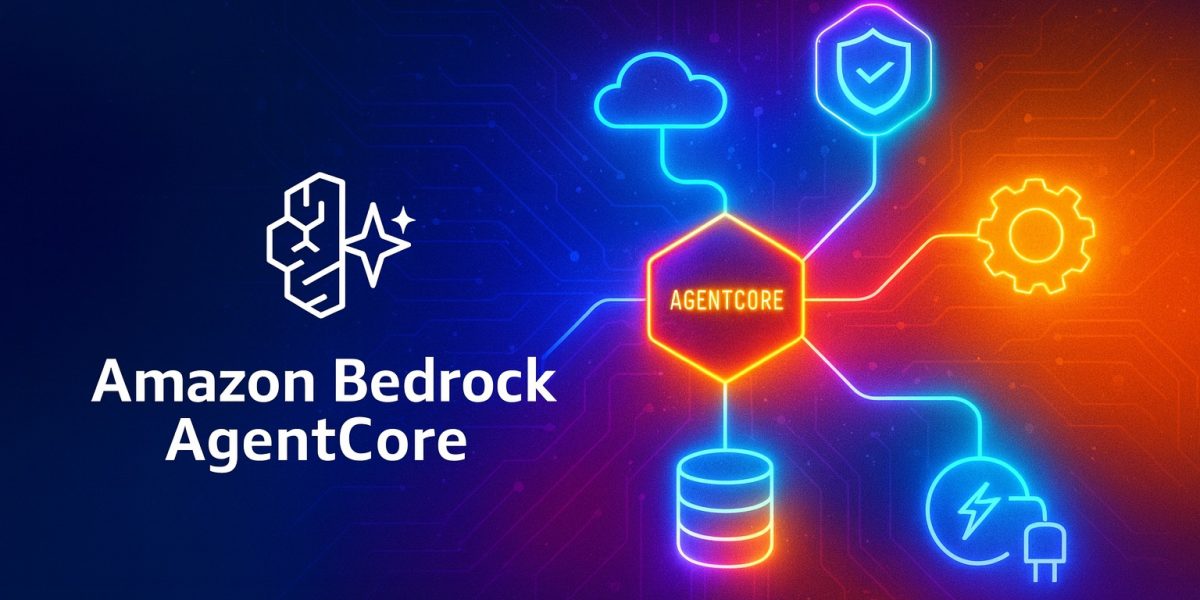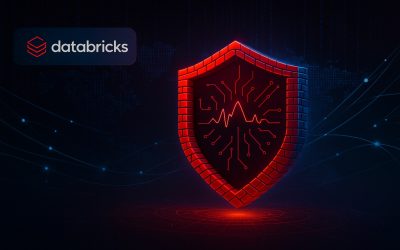Amazon Web Services announced general availability of Bedrock AgentCore on October 13, 2025, positioning it as a comprehensive platform for building, deploying, and operating AI agents at enterprise scale. After years of cloud computing fundamentally changing how organizations approach infrastructure, AWS argues we’re at a similar inflection point with AI agents—and that moving from prototype to production requires more than frameworks or low-code tools.
The platform has already gained traction, with the AgentCore SDK surpassing one million downloads across organizations including Clearwater Analytics, Cox Automotive, Druva, Ericsson, Experian, Heroku, National Australia Bank, Sony, and Thomson Reuters. Partners like Accenture, Cisco, Deloitte, and Salesforce are supporting enterprise implementations.

What AgentCore Actually Provides
AgentCore delivers a managed platform covering the complete agent lifecycle—from initial development through production deployment and ongoing operations. The architecture allows organizations to mix and match components, use their preferred frameworks and models, while accessing enterprise-grade infrastructure AWS has built its reputation on.
Framework and Model Flexibility
The platform supports major agent frameworks including CrewAI, Google ADK, LangGraph, LlamaIndex, OpenAI Agents SDK, and Strands Agents. Model access extends beyond Amazon Bedrock’s catalog to include OpenAI and Gemini, letting development teams stick with tools they already know rather than forcing migration to AWS-specific approaches.
This flexibility addresses a legitimate concern in the rapidly evolving agent landscape where new frameworks and protocols emerge constantly. Organizations can adopt AgentCore’s infrastructure services without being locked into specific development approaches that might become outdated.
Core Capabilities That Enable Agent Functionality
AgentCore Code Interpreter lets agents generate and execute code in isolated environments—essential for agents that need to perform calculations, data transformations, or run analysis scripts as part of their workflows.
AgentCore Browser provides web interaction capabilities at scale, enabling agents to navigate websites, fill forms, and extract information from web applications as part of automated processes.
AgentCore Gateway transforms existing APIs and AWS Lambda functions into formats agents can consume. It connects to Model Context Protocol (MCP) servers and integrates with business tools like Jira, Asana, and Zendesk, creating a unified access point across enterprise systems.
AgentCore Identity handles authentication and authorization through OAuth standards, ensuring agents can securely access multiple systems while operating on behalf of users.
AgentCore Memory manages context retention across interactions. Rather than treating each conversation as isolated, agents can maintain understanding of user preferences, historical interactions, and relevant context that improves response quality over time. This eliminates the infrastructure complexity of building custom memory systems.
AgentCore Observability provides comprehensive monitoring through Amazon CloudWatch integration, with support for existing tools like Dynatrace, Datadog, Arize Phoenix, LangSmith, and Langfuse through OpenTelemetry compatibility. Given agents’ non-deterministic reasoning and real-time action execution, complete visibility into agent behavior becomes critical for debugging and optimization.
AgentCore Runtime handles the unpredictable nature of agent workloads, automatically scaling from zero to thousands of concurrent sessions. The platform supports eight-hour runtime sessions for extended workflows—addressing a common limitation in agent platforms where complex tasks get interrupted by session timeouts.
Security Architecture for Enterprise Deployment
Security implementation uses microVM technology, isolating each agent session in its own computing environment to prevent data leaks between concurrent operations. Support for Virtual Private Cloud (VPC) environments and AWS PrivateLink keeps network traffic within private infrastructure rather than traversing public internet.
For regulated industries like healthcare and finance where compliance requirements are strict, these security controls become prerequisites rather than nice-to-have features. The comprehensive audit trails provide documentation needed for regulatory review and compliance verification.

Real-World Implementation Examples
Manufacturing Automation at Amazon Devices
Amazon’s internal Devices Operations & Supply Chain team uses AgentCore for intelligent workflow automation in manufacturing. Their approach involves multiple specialized agents working together—one reads product requirements and generates detailed quality control test procedures, while another trains vision systems for robotic manufacturing lines.
Tasks that previously required days of engineering time, like fine-tuning object detection models, now complete in under an hour. This represents early-stage proof of concept for their vision of AI-driven manufacturing processes.
Healthcare Review Acceleration at Cohere Health
Cohere Health built Cohere Review Resolve™ using AgentCore—an AI copilot optimizing medical necessity reviews for health plans. The system analyzes structured and unstructured data including clinical records, patient notes, and faxes to identify evidence supporting requested treatments.
The company selected AgentCore specifically for its enterprise-grade infrastructure needed in a highly regulated healthcare environment. Extended session support and comprehensive audit trails proved essential for multi-hour clinical review workflows requiring complete historical context.
Cohere Health projects Review Resolve™ will reduce review times 30-40%, helping meet mandated turnaround requirements while improving clinical determination accuracy by approximately 30%. For patients, faster decisions mean quicker care access, better therapy adherence, and improved outcomes.
Telecommunications Complexity at Ericsson
Ericsson’s 3G/4G/5G/6G systems span millions of code lines across thousands of interconnected subsystems—representing decades of engineering at nation-scale critical infrastructure levels. Dag Lindbo, Head of AI and Emerging Technologies in Business Area Networks, notes that AgentCore powers their fusion of data and information delivery, scaling to “double-digit gains across a workforce in the tens of thousands.”
The framework flexibility proved critical for Ericsson, enabling scaling across multiple teams and diverse use cases without forcing standardization on a single development approach.
Enterprise AI Transformation at Sony
Sony Group uses AgentCore as the foundation for their group-wide Agentic AI Platform. Masahiro Oba, Senior General Manager of AI Acceleration Division for Digital & Technology Platform, emphasizes that while agentic AI enables “advanced operational efficiency and sophistication,” it also “presents many technical challenges.”
By leveraging AgentCore, Sony achieved enterprise-level security, observability, and scalability with seamless cross-platform connectivity to AI resources—a critical capability for a global technology and entertainment company. The platform lets Sony govern and share AI capabilities across their organization while accelerating transformation with confidence.
Campaign Automation at Epsilon
Epsilon, part of Publicis Groupe (the world’s largest advertising company), uses AgentCore for their Intelligent Campaign Automation solution. The system enables automated campaign design, audience targeting, and real-time optimization across multiple channels—delivering faster execution and improved targeting precision at scale for large brands.
Integration Development Experience
AgentCore works with integrated development environments like Kiro and Cursor AI through its Model Context Protocol server. Development teams can start building within minutes while maintaining access to full-featured, production-ready capabilities.
The platform’s composable architecture means organizations can adopt specific services matching their requirements rather than committing to the entire stack immediately. Teams already using particular frameworks or models can integrate AgentCore’s infrastructure services without rewriting existing agent logic.

Geographic Availability and Ecosystem
AgentCore launched in nine AWS regions: Asia Pacific (Mumbai, Singapore, Sydney, Tokyo), Europe (Dublin, Frankfurt), and US East/West (N. Virginia, Ohio, Oregon). This global coverage supports multinational deployments and data residency requirements.
AWS Marketplace offers pre-built agents and tools designed for AgentCore, potentially accelerating implementation for organizations without extensive AI development resources.
Evaluating AgentCore for Your Organization
The platform makes most sense for:
Enterprises with complex compliance requirements where comprehensive audit trails, session isolation, and security controls are mandatory rather than optional. Healthcare, finance, and regulated industries fall into this category.
Organizations running extended agent workflows that exceed typical session timeouts. The eight-hour runtime support handles complex multi-step processes without artificial interruptions.
Companies already invested in AWS infrastructure who can leverage existing VPC configurations, IAM policies, and operational expertise rather than learning entirely new cloud platforms.
Development teams using multiple agent frameworks who need infrastructure flexibility without framework lock-in as the agent landscape evolves.
AgentCore may be excessive for:
Small-scale prototypes and experiments where managed infrastructure overhead exceeds benefits. Simpler frameworks running on standard compute might suffice initially.
Organizations with minimal security requirements operating in unregulated industries where microVM isolation and comprehensive observability add cost without corresponding value.
Teams committed to non-AWS infrastructure who would face integration challenges and vendor diversification rather than ecosystem consolidation.
Technical Considerations and Limitations
Several factors warrant consideration:
Cost structure remains opaque in the announcement. Enterprise-grade infrastructure with microVM isolation and extended runtimes likely carries premium pricing. Organizations should request detailed cost projections based on anticipated agent workload patterns.
Framework support coverage includes major options but the agent development landscape evolves rapidly. Teams using newer or niche frameworks should verify compatibility before committing.
Multi-cloud strategy implications become relevant for organizations intentionally avoiding single-vendor concentration. AgentCore’s AWS-native architecture may complicate multi-cloud agent deployment strategies.
Migration complexity for organizations with existing agent implementations on different platforms. While framework flexibility helps, infrastructure integration still requires thoughtful migration planning.
Amazon Bedrock AgentCore delivers a comprehensive enterprise platform for AI agent deployment, addressing legitimate gaps between prototype experimentation and production reliability. The security architecture using microVM isolation, extended eight-hour runtimes, and framework flexibility demonstrate AWS understanding enterprise requirements beyond basic functionality.
Early adoption by organizations like Ericsson, Sony, and Cohere Health in demanding environments—telecommunications infrastructure, global entertainment, regulated healthcare—validates the platform’s capability to handle complex real-world scenarios.
The value proposition centers on AWS’s nearly two decades of experience building mission-critical infrastructure. Organizations betting their operations on AI agents need proven foundations, not experimental platforms. AgentCore offers that foundation while maintaining flexibility as agent technologies evolve.
For enterprises serious about moving AI agents from pilots to production at scale, particularly those already invested in AWS infrastructure and facing stringent security requirements, AgentCore merits serious evaluation. The platform transforms what was previously complex infrastructure engineering into managed services, letting development teams focus on agent behavior rather than operational concerns.




Post a comment